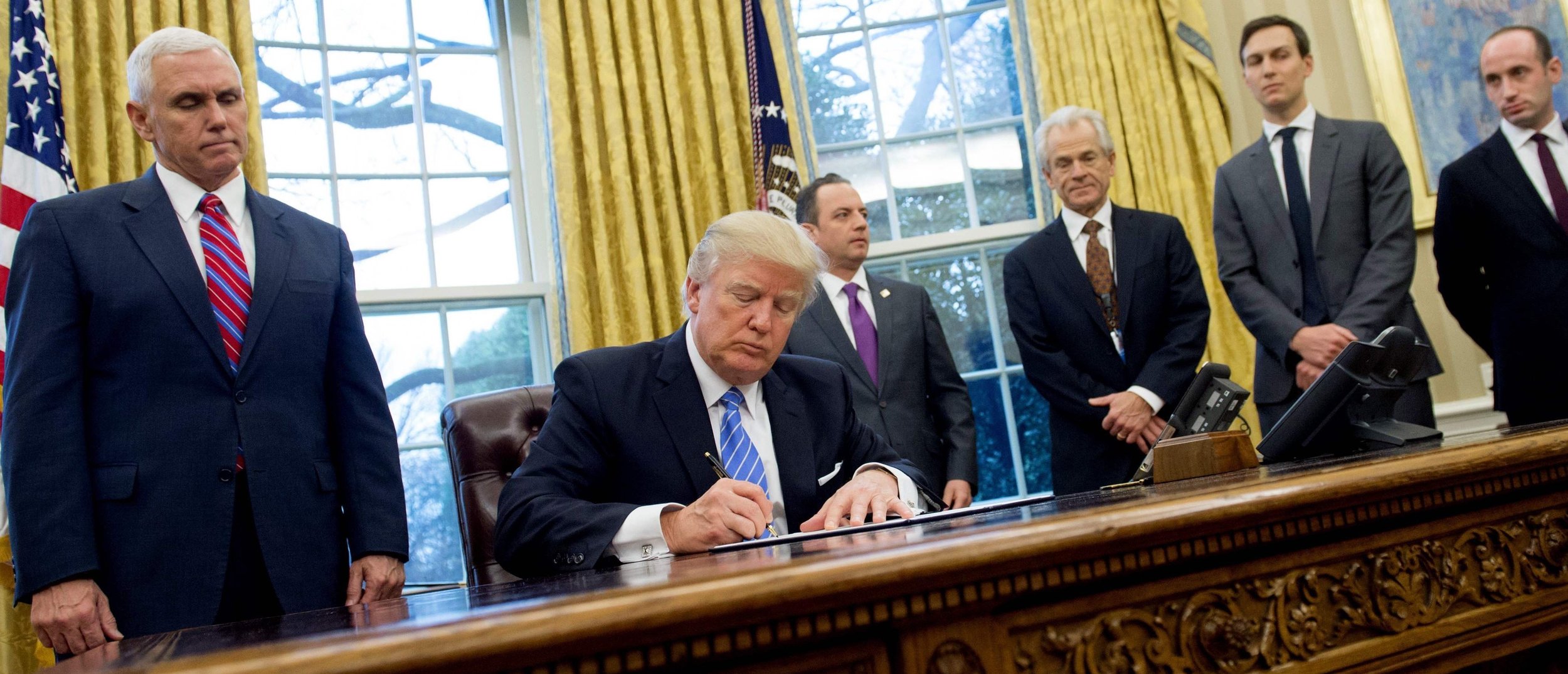The Mexico City Policy Is Silencing Thousands
President Trump signing an executive order reinstating the Mexico City Policy on his first full day in office (Image)
At the second International Conference on Population in 1984, President Ronald Reagan signed the Mexico City Policy into effect. This executive action, the first of its kind, went beyond the Helms Amendment - a policy already in place prohibiting US overseas funding from being used for abortion. Reagan’s order required foreign NGOs, or non-governmental organizations, to pledge that they would not “perform or actively promote abortion as a method of family planning” with American monetary aid. The policy has subsequently been repealed by every Democratic president and reinstated by every Republican president since Reagan.
On January 23, 2017, merely three days after his inauguration, President Trump signed a newer, broader version of the Mexico City Policy into action. Last year’s ruling applies not just to family planning clinics, but to almost all types of healthcare facilities in countries receiving US aid. This includes clinics that treat HIV, malaria, tuberculosis, regional diseases, and more.
Critics call this policy the “global gag rule”, and activists often claim the protocol bans funding to any foreign healthcare organizations that so much as mention the word “abortion.” Although there are exceptions -- foreign NGOs can refer abortion services to patients who have already decided to get an abortion in countries where the procedure is legal and to patients whose pregnancies are a result of incest or rape -- the claim mostly holds water. Organizations are not allowed to proactively mention abortion outside of these exceptions. President Trump’s expanded policy also prohibits offering any advice about abortions or providing locations where one can receive them, publicly supporting a change in a country’s abortion laws or lobbying in any form, and providing public information about abortion as a legitimate method of family planning.
To those opposing abortion, the global gag rule may seem, in theory, like a solid solution to preventing abortions. In fact, however, abortion rates have actually risen since its implementation. Marie Stopes International, one of the largest international family planning providers, estimated that from 2017 to 2020, this policy would lead to 4.3 million more abortions, about 2.1 million of those unsafe, and 21,700 more maternal deaths.
It is clear that the Mexico City Policy does not come close to meeting its intended goal of reducing abortions. The global gag rule hurts more than it helps. There have been attempts to repeal it, however. Representative Nita Lowey of New York and Senator Jeanne Shaheen of New Hampshire co-sponsored a bill the day after President Trump signed the Mexico City Policy into action referred to as the Global HER Act, or the Global Health, Empowerment and Rights Act, which would unilaterally prevent the gag rule from ever being put into place again.
It seems inevitable that the Mexico City Policy will continue to be un- and re-instated as long as abortion remains such a divisive issue among the electorate. Still, the partisan back-and-forth currently associated with the global gag rule neglect the countless lives affected by the policy around the world.

